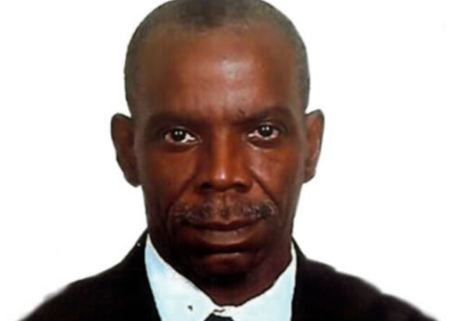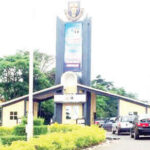
If Nigeria does not devolve more political power to the sub-national governments, economic initiatives to the Organised Private Sector and drastically review its industrialisation model so that industrial raw materials, if not also industrial machinery and spare parts, are sourced locally, Nigeria’s industrialisation will be a mirage.
What international monopoly capital has done is to ensure that Nigeria, and other Third World economies, are not autonomous in manufacturing anything. And they achieve that with the stifling strategy called import-substitution that ensures that so-called Nigerian manufacturing firms are mere assembly lines.
The import-substitution industrialisation strategy is a grand deception that coyly gave the impression of self-sufficiency to former colonies and client states of the former colonial masters.
It was a neo-colonial plan to forever entrench Nigeria’s economic dependence on Western metropolitan economies. To borrow a phrase from Afrobeat musician, Femi Kuti, it was a return to second slavery.
It was late musician Michael Jackson, the King of Pop, a good friend and protégé of many white folks, who finally felt led to come out and sing the confessional, “All I want to say is that they don’t really care about us.”
The West was a bit more honest when, in the 1970s, they began to export completely-knocked-down parts of saloon cars, buses, trucks and other heavy-duty automobiles to be re-coupled in factories called automobile assembly plants in Nigeria.
The import-substitution booby trap did three things to the disadvantage of the Nigerian economy. First, it ensured that plants and machinery needed for running the factories within Nigeria were manufactured outside Nigeria.
Why do you think the Ajaokuta Steel Mill is still idle more than 50 years after its inauguration by the government of General Yakubu Gowon? It is the conspiracy of the West to derail, or at least delay, the take-off of the foundational infrastructure needed for Nigeria’s industrialisation.
Even Russia and India, non-Western countries that have been invited at various times to help jump-start the Ajaokuta Steel Mill, have also serially failed. It looks like it’s the metropolitan economies against the peripheral economies; the rich against the poor nations.
Secondly, the strategy ensured that spare parts needed to keep the imported industrial plants and machinery working could only be imported. Those who run even multinationals in Nigeria will tell you how difficult it is to obtain spare parts within Nigeria.
And finally, the industrial raw materials are also imported into Nigeria. Even industrial raw materials said to be manufactured in Nigeria, obtain their basic inputs from the metropolitan economies. For instance, manufacturers of textile dyestuffs, pigments and chemicals locally source their own raw materials from their home countries.
For many manufacturers of fast-moving consumer goods, like beverages, toiletries and cosmetics, it is practically an article of faith to import their raw materials, to guarantee employment in their home countries.
The result of this subterfuge is that the plant and machinery, spare parts and industrial raw materials are always sold at prices that, ab initio, put the outputs in the Nigerian factories at a disadvantage.
Even do-gooder China which is building roads, bridges, railways, and airports all over Africa has not yet started to manufacture plants and machinery, spare parts and industrial raw materials in Africa.
China still prefers Africans to come to China to buy consumer goods. Its so-called local automobile “manufacturing” plant, which is merely suturing CKD parts together, does not buy any inputs from Ajaokuta Steel Mill, for instance.
Sometimes, when these denizens of the West realise that local factories in Nigeria can manufacture high quality products at competitive prices, they begin to slow down the supply of inputs, like spare parts and industrial raw materials.
They always come up with a brilliant explanation which some lazy Nigerian bureaucrats and politicians echo. They argue that you cannot purchase certain plants and machinery just by picking them from the shelf. They go, “It takes a long time to build a ship or an oil rig, and blah, blah, blah.”
After the late Abba Kyari, Chief of Staff to former President Muhammadu Buhari, went on a “secret” mission to enlist Germany to up the electricity game of Nigeria, the Germans have been coming up with excuses why they cannot walk the talk of the meeting.
The West knows that if Nigeria gets its electricity sector right, there is no stopping Nigeria. If what is happening in Aba, in Abia State, is sustained, the impact on the economy of South-East Nigeria will be phenomenal.
The positive ripple effect will be unbelievable.
Indeed, it will challenge other geopolitical zones of Nigeria. But the West does not want that. They do not want to lose their leash on the ATM that Nigeria has become.
Apart from their lock on plants and machinery, spare parts and industrial raw materials, the multinationals come with capital obtained at a relatively low interest rate from banks in their home countries. The odds are truly stacked against local Nigerian manufacturers.
And this reality is what has further entrenched Nigeria in the abyss of an import-dependent economy. It’s not looking like there is a getting out of this hell soon because Nigerian policymakers do not seem to know what is going on.
Even the so-called megabanks of Nigeria must borrow Eurobonds at lower rates or sell off the forex they have been hoarding to acquire the liquidity to grant loans to local customers that need funding.
The banks will need the Eurobond that always balloon as the naira loses value, to achieve the Central Bank of Nigeria’s directive that commercial banks with international authorisation must raise their share capital base to N500bn within 24 months.
The same will apply to banks with national authorisation that must up their share capital to N200bn, and commercial banks with regional authorisation as well as merchant banks that must come up with N50bn.
That is why Hakami Ali, Central Bank of Nigeria’s Acting Director of Corporate Communications, was excited when Nigeria’s capital market experienced an inflow of $1.5bn, through Foreign Portfolio Investments.
However, the new foreign cash inflow may not go directly to the companies listed on the Nigerian bourse if they didn’t issue Initial Public Offers or Public Offers. The money may have been paid to investors that were divesting or reducing their exposures.
Now, those who worry that African countries do not trade among themselves do not seem to remember that African countries trade in the same primary mineral and agricultural commodities, and they do not always have the technology to convert them into industrial goods.
Not even Nigeria, with Africa’s highest Gross Domestic Product, has the capacity to turn home-grown cocoa into chocolate, not to talk of importing lithium from neighbour Niger Republic to manufacture batteries!
Only the industrialised metropolitan economies, with the appropriate technology to convert primary commodities into industrial goods, can buy the abundant primary commodities of the African continent.
You can only imagine the level of rejoicing in the boardrooms of foreign refineries that sell petroleum products to Nigeria, a petroleum-producing country with a huge population with lavish purchasing power.
To get out of the import-substitution straits that Western consultants consigned Nigeria into and achieve the needed tectonic economic transformations, Nigeria’s policymakers must adopt Nigeria-centric economic models.
This import-substitution mountain must be removed.












